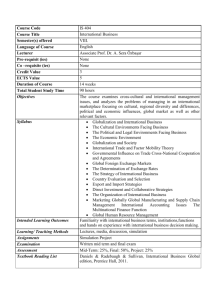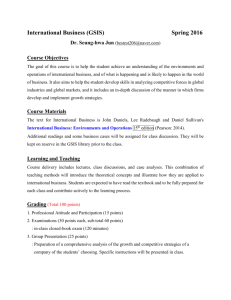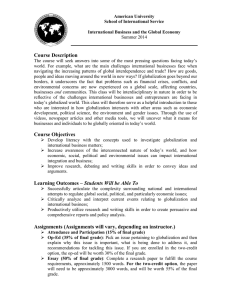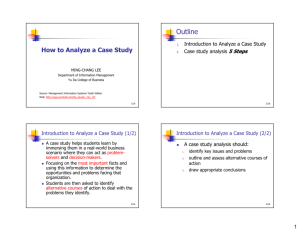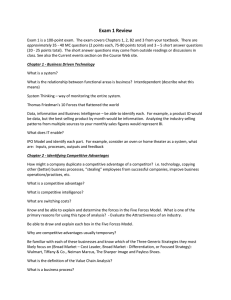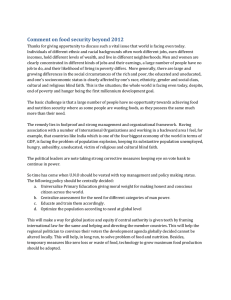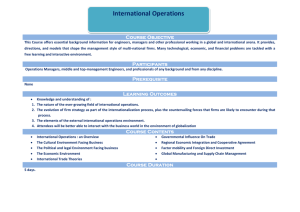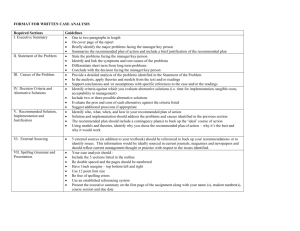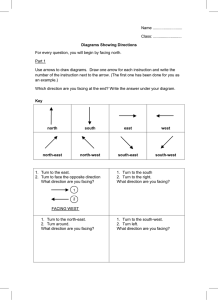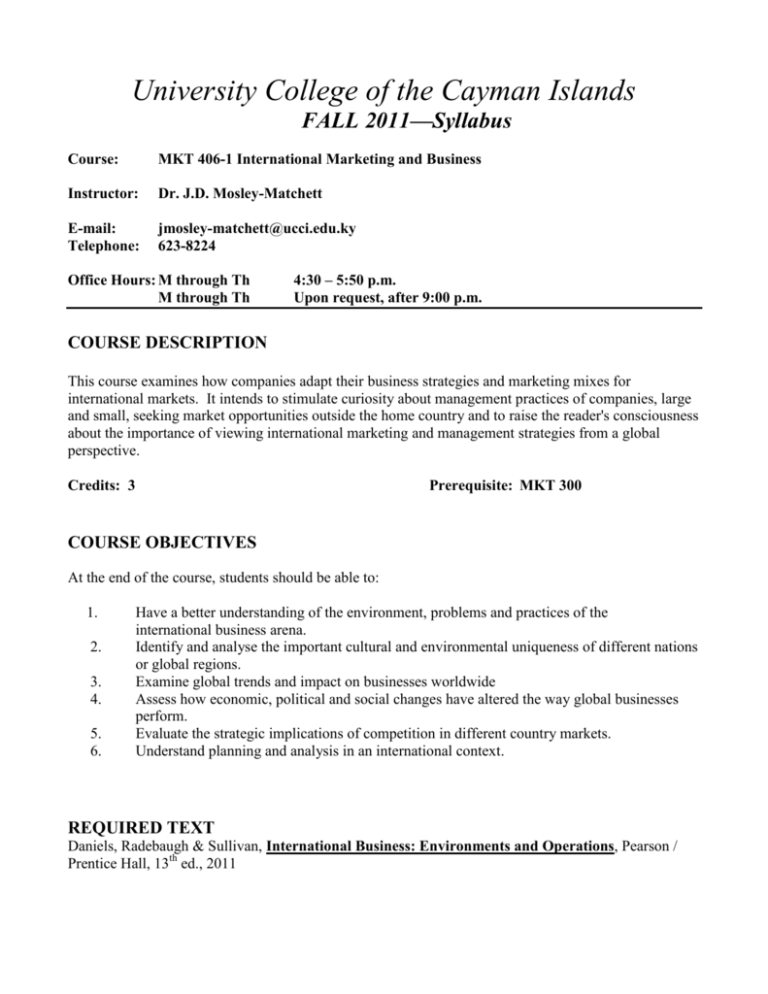
University College of the Cayman Islands
FALL 2011—Syllabus
Course:
MKT 406-1 International Marketing and Business
Instructor:
Dr. J.D. Mosley-Matchett
E-mail:
Telephone:
jmosley-matchett@ucci.edu.ky
623-8224
Office Hours: M through Th
M through Th
4:30 – 5:50 p.m.
Upon request, after 9:00 p.m.
COURSE DESCRIPTION
This course examines how companies adapt their business strategies and marketing mixes for
international markets. It intends to stimulate curiosity about management practices of companies, large
and small, seeking market opportunities outside the home country and to raise the reader's consciousness
about the importance of viewing international marketing and management strategies from a global
perspective.
Credits: 3
Prerequisite: MKT 300
COURSE OBJECTIVES
At the end of the course, students should be able to:
1.
2.
3.
4.
5.
6.
Have a better understanding of the environment, problems and practices of the
international business arena.
Identify and analyse the important cultural and environmental uniqueness of different nations
or global regions.
Examine global trends and impact on businesses worldwide
Assess how economic, political and social changes have altered the way global businesses
perform.
Evaluate the strategic implications of competition in different country markets.
Understand planning and analysis in an international context.
REQUIRED TEXT
Daniels, Radebaugh & Sullivan, International Business: Environments and Operations, Pearson /
Prentice Hall, 13th ed., 2011
COURSE OUTLINE
Part 1.
Background for in International Business
1.
Part 2.
The Environment of International Business
2.
3.
4.
5.
Part 3.
Global Foreign-Exchange Markets
The Determination of Exchange Rates
Global Strategy, Structure, and Implementation
11.
12.
13.
14.
15.
Part 6.
International Trade and Factor-Mobility Theory
Government Influence on Trade
Cross-National Cooperation and Agreements
World Financial Environment
9.
10.
Part 5.
The Cultural Environments Facing Business
The Political and Legal Environments Facing Business
The Economic Environments Facing Businesses
Globalization and Society
Theories and Institutions: Trade and Investment
6.
7.
8.
Part 4.
Globalization and International Business
The Strategy of International Business
Country Evaluation and Selection
Export and Import Strategies
Direct Investment and Collaborative Strategies
The Organization of International Business
Managing International Operations
16.
17.
18.
19.
20.
Marketing Globally
Global Manufacturing and Supply Chain Management
International Accounting Issues
The Multinational Finance Function
Human Resource Management
ASSESSMENT
Course Work
Group Project
Midterm
Final
30%
20%
20%
30%

